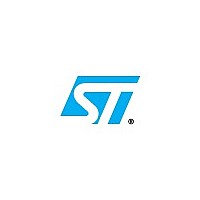E-L298N STMicroelectronics, E-L298N Datasheet - Page 7

E-L298N
Manufacturer Part Number
E-L298N
Description
IC DRIVER FULL DUAL 15MULTIWATT
Manufacturer
STMicroelectronics
Type
H Bridger
Datasheet
1.E-L298P.pdf
(13 pages)
Specifications of E-L298N
Input Type
Non-Inverting
Number Of Outputs
4
Current - Output / Channel
2A
Current - Peak Output
3A
Voltage - Supply
4.5 V ~ 46 V
Operating Temperature
-25°C ~ 130°C
Mounting Type
Through Hole
Package / Case
Multiwatt-15 (Vertical, Bent and Staggered Leads)
Product
H-Bridge Drivers
Supply Current
30 mA
Mounting Style
Through Hole
Lead Free Status / RoHS Status
Lead free / RoHS Compliant
On-state Resistance
-
Lead Free Status / Rohs Status
Lead free / RoHS Compliant
Other names
497-4554-5
Figure 7 : For higher currents, outputs can be paralleled. Take care to parallel channel 1 with channel 4
APPLICATION INFORMATION (Refer to the block diagram)
1.1. POWER OUTPUT STAGE
The L298 integrates two power output stages (A ; B).
The power output stage is a bridge configuration
and its outputs can drive an inductive load in com-
mon or differenzial mode, depending on the state of
the inputs. The current that flows through the load
comes out from the bridge at the sense output : an
external resistor (R
tensity of this current.
1.2. INPUT STAGE
Each bridge is driven by means of four gates the in-
put of which are In1 ; In2 ; EnA and In3 ; In4 ; EnB.
The In inputs set the bridge state when The En input
is high ; a low state of the En input inhibits the bridge.
All the inputs are TTL compatible.
2. SUGGESTIONS
A non inductive capacitor, usually of 100 nF, must
be foreseen between both Vs and Vss, to ground,
as near as possible to GND pin. When the large ca-
pacitor of the power supply is too far from the IC, a
second smaller one must be foreseen near the
L298.
The sense resistor, not of a wire wound type, must
be grounded near the negative pole of Vs that must
be near the GND pin of the I.C.
and channel 2 with channel 3.
SA
; R
SB
.) allows to detect the in-
Each input must be connected to the source of the
driving signals by means of a very short path.
Turn-On and Turn-Off : Before to Turn-ON the Sup-
ply Voltage and before to Turn it OFF, the Enable in-
put must be driven to the Low state.
3. APPLICATIONS
Fig 6 shows a bidirectional DC motor control Sche-
matic Diagram for which only one bridge is needed.
The external bridge of diodes D1 to D4 is made by
four fast recovery elements (trr
must be chosen of a VF as low as possible at the
worst case of the load current.
The sense output voltage can be used to control the
current amplitude by chopping the inputs, or to pro-
vide overcurrent protection by switching low the en-
able input.
The brake function (Fast motor stop) requires that
the Absolute Maximum Rating of 2 Amps must
never be overcome.
When the repetitive peak current needed from the
load is higher than 2 Amps, a paralleled configura-
tion can be chosen (See Fig.7).
An external bridge of diodes are required when in-
ductive loads are driven and when the inputs of the
IC are chopped ; Shottky diodes would be preferred.
200 nsec) that
L298
7/13

















